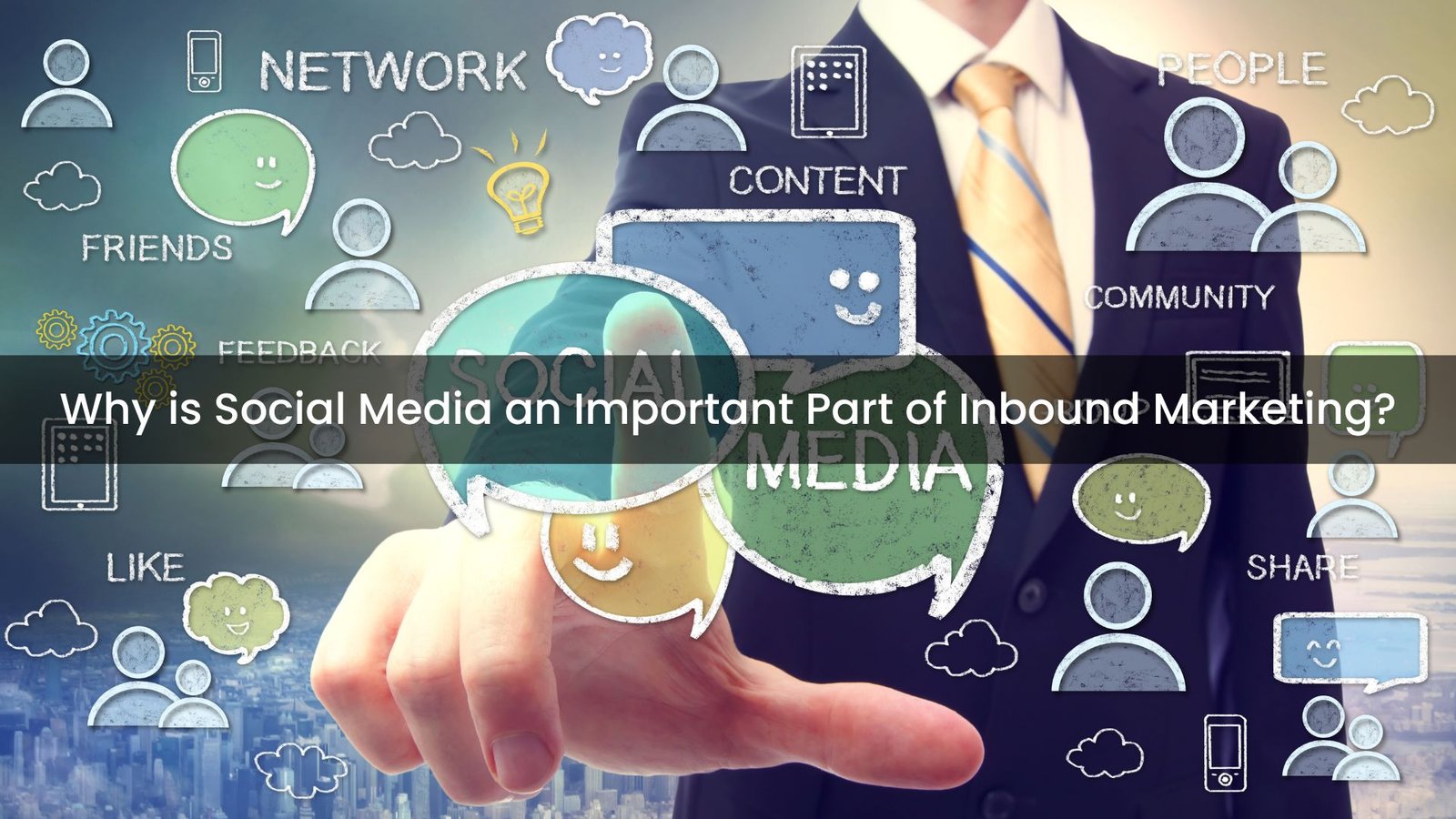In today’s digital age, inbound marketing has emerged as a cornerstone strategy for businesses looking to attract, engage, and delight their target audience. At the heart of inbound marketing lies the concept of providing value to potential customers, rather than interrupting them with traditional advertising methods. In this digital landscape, social media plays a pivotal role in amplifying the effectiveness of inbound marketing efforts.
Introduction to Inbound Marketing
Before delving into the significance of social media in inbound marketing, it’s essential to understand the fundamentals of inbound marketing itself. Inbound marketing focuses on creating valuable content that addresses the needs and interests of the target audience. By providing relevant and helpful information, businesses aim to attract potential customers organically.
Understanding Social Media in Inbound Marketing
The Role of Social Media Platforms
Social media platforms serve as powerful channels for distributing content and engaging with audiences. With billions of users active on platforms like Facebook, Instagram, Twitter, LinkedIn, and TikTok, businesses have unprecedented opportunities to connect with their target demographics.
Building Brand Awareness
One of the primary objectives of inbound marketing is to increase brand visibility and awareness. Social media platforms offer an ideal environment for showcasing brand personality, values, and offerings. Through consistent and authentic interactions, businesses can foster brand recognition and familiarity among their target audience.
Engagement and Relationship Building
Social media facilitates two-way communication between brands and their audience, allowing for real-time interactions and feedback. By actively engaging with followers through comments, messages, and shares, businesses can cultivate meaningful relationships and foster a sense of community.

Increasing Website Traffic
Utilizing Social Media Channels
Social media serves as a gateway to drive traffic to a business’s website or blog. By strategically sharing content across various platforms, businesses can attract users who are interested in their products or services. Additionally, social media algorithms prioritize content that generates engagement, thereby increasing the visibility of branded posts.
Content Sharing and Virality
Compelling content has the potential to go viral on social media, reaching a vast audience within a short period. By creating shareable and engaging content, businesses can leverage the viral nature of social media to expand their reach and attract new visitors to their website.
Lead Generation and Conversion
Capturing Leads through Social Media
Social media platforms offer valuable opportunities for lead generation through tactics such as lead magnets, contests, and gated content. By offering incentives in exchange for contact information, businesses can build an email list of qualified leads interested in their offerings.
Nurturing Leads through Content
Once leads are captured, businesses can nurture them through targeted content tailored to their specific interests and pain points. By delivering valuable and personalized content at each stage of the buyer’s journey, businesses can guide leads towards making informed purchasing decisions.
Customer Retention and Loyalty
Community Building on Social Media
Social media platforms serve as virtual communities where customers can connect with each other and with the brand. By fostering a sense of belonging and inclusivity, businesses can cultivate loyal brand advocates who are more likely to engage with and recommend their products or services.
Providing Customer Support and Feedback
Social media channels provide convenient channels for customers to seek assistance, ask questions, and provide feedback. By promptly addressing inquiries and concerns, businesses can demonstrate their commitment to customer satisfaction and improve brand perception.
Social Proof and Credibility
Testimonials and Reviews
Social media platforms are rich sources of user-generated content, including testimonials, reviews, and endorsements. By showcasing positive feedback from satisfied customers, businesses can build trust and credibility among prospective buyers.
Social Signals and Influence
The presence and activity of a brand on social media serve as social signals of its credibility and relevance. By consistently publishing high-quality content and engaging with followers, businesses can establish themselves as authoritative voices within their industry.

Data Collection and Insights
Analyzing Social Media Metrics
Social media platforms provide robust analytics tools that allow businesses to track and measure the performance of their campaigns. By analyzing metrics such as engagement rate, reach, and conversion rate, businesses can gain valuable insights into the effectiveness of their inbound marketing efforts.
Understanding Audience Behavior
Social media data provides valuable insights into audience demographics, preferences, and behaviors. By leveraging this data, businesses can refine their targeting strategies and create content that resonates with their target audience.
Adaptability and Trends
Staying Updated with Social Media Trends
Social media landscapes are constantly evolving, with new platforms, features, and trends emerging regularly. By staying informed about the latest developments in social media marketing, businesses can adapt their strategies to remain relevant and capitalize on emerging opportunities.
Flexibility in Marketing Strategies
Inbound marketing strategies should be flexible and adaptable to accommodate changes in consumer behavior and market dynamics. Social media provides businesses with the agility to experiment with different approaches and pivot their strategies based on real-time feedback and insights.
Conclusion
In conclusion, social media plays a crucial role in the success of inbound marketing initiatives. By leveraging social media platforms effectively, businesses can increase brand awareness, drive website traffic, generate leads, foster customer relationships, and gather valuable insights. In today’s digital landscape, integrating social media into inbound marketing strategies is essential for staying competitive and engaging with target audiences effectively.
FAQs (Frequently Asked Questions)
How does social media contribute to inbound marketing?
Social media platforms serve as channels for distributing content, engaging with audiences, generating leads, and gathering insights into audience behavior.
Which social media platforms are best for inbound marketing?
The choice of social media platforms depends on the target audience and business objectives. However, popular platforms like Facebook, Instagram, Twitter, LinkedIn, and TikTok offer significant opportunities for inbound marketing.
How can businesses measure the effectiveness of their social media efforts in inbound marketing?
Businesses can measure social media effectiveness by analyzing metrics such as engagement rate, reach, conversion rate, and return on investment (ROI).
What role does content play in social media inbound marketing?
Content is the foundation of inbound marketing on social media, serving to attract, engage, and delight target audiences with valuable and relevant information.
How can businesses stay updated with social media trends for inbound marketing?
Businesses can stay updated with social media trends by following industry publications, attending conferences and webinars, networking with peers, and monitoring social media platforms for new features and updates.





